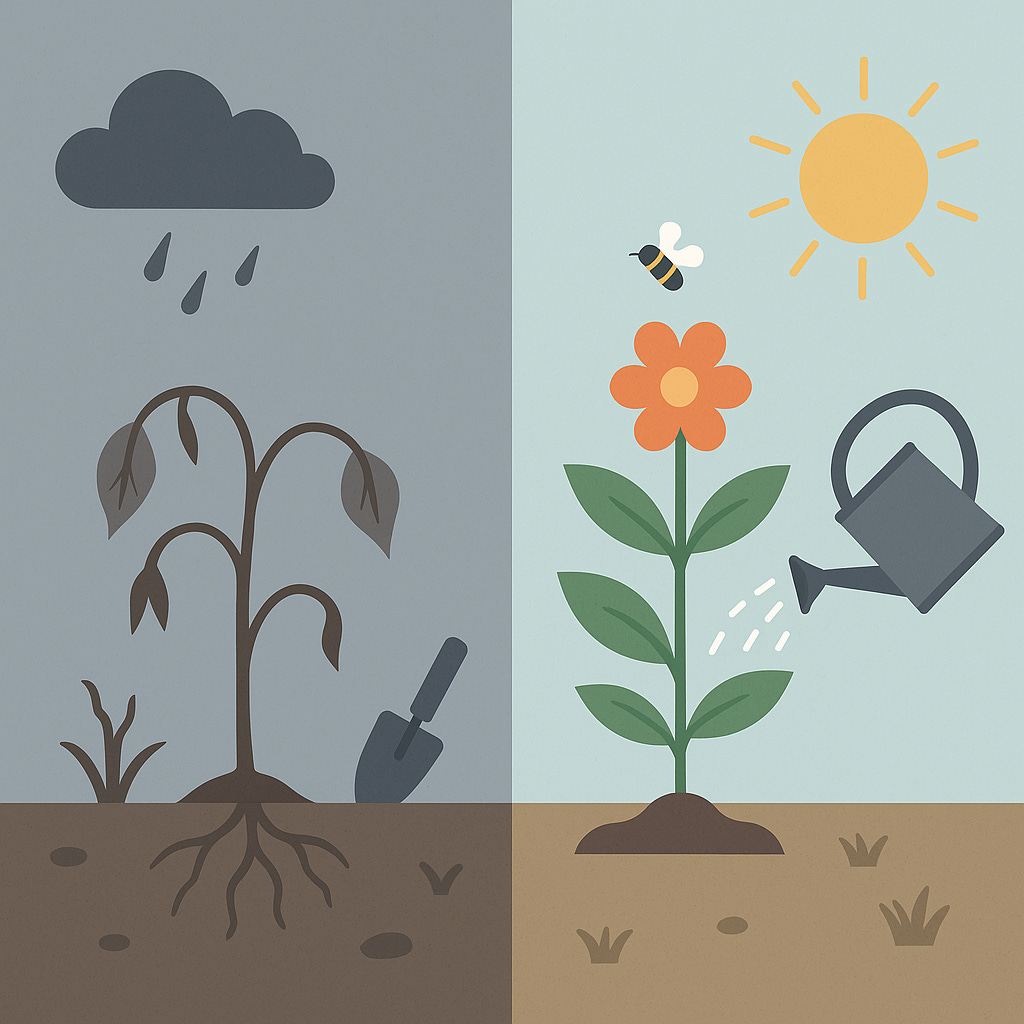The 7 Habits of Highly Ineffective People (Before I Got My Act Together)
How 7 Small Changes Transformed My Mindset, Work, and Life
In my early twenties, I read "The 7 Habits of Highly Effective People" by Stephen Covey. But before that, I had unknowingly built up the opposite system: The 7 Habits of Highly Ineffective People.
The 7 Habits of Highly Ineffective People
1. Be reactive
I blamed traffic, teammates, or my manager. I let circumstances dictate my response and gave away control.
2. Begin with confusion
I had no clear direction. I said yes to everything and wondered why I felt constantly overwhelmed.
3. Put first what’s easy
I focused on low-effort tasks to feel productive—responding to emails and tweaking slides—instead of prioritizing absolute tasks.
4. Think win-lose
I treated peers as competition. Someone else’s success felt like a loss to me.
5. Seek first to be heard
I “listened” just long enough to reply. Feedback felt like criticism, not a gift.
6. Avoid synergy
I avoided collaboration. I believed doing it myself was faster and cleaner, even if the results were smaller.
7. Burn out, repeat
I skipped rest. Hustle was my badge of honor. Sharpening the saw? I didn’t even own one.
Then I found Covey’s words:
“Private victory precedes public victory.”
That line stayed with me. I started changing how I approached my work—and my life.
The 7 Habits of Highly Effective People
And how they rewired me, step by step:
1. Be proactive
I stopped blaming and started choosing. Covey wrote, “Between stimulus and response is our power to choose.” That space became my training ground.
2. Begin with the end in mind
I wrote a personal mission statement. It brought clarity. Now I filter decisions through that lens.
3. Put first things first
I stopped chasing urgency and started honoring importance. I blocked time for meaningful work and relationships.
4. Think win-win
I started asking, “What outcome works for both of us?” Collaboration became energizing, not threatening.
5. Seek first to understand, then to be understood
I practiced deep listening. Instead of fixing, I focused on understanding. My coaching, parenting, and leadership improved.
6. Synergize
I began building teams where diverse perspectives could intersect and create more effective solutions. It wasn’t always faster, but it was far better.
7. Sharpen the saw
I started running, reflecting, journaling, and sleeping better. I learned that renewal isn’t optional; it’s strategic.
Covey didn’t just offer productivity hacks. He gave me a framework to lead myself. And that changed how I led others.
Reflection question:
Which of Covey’s habits are you living today—and which one is quietly asking you to begin?


